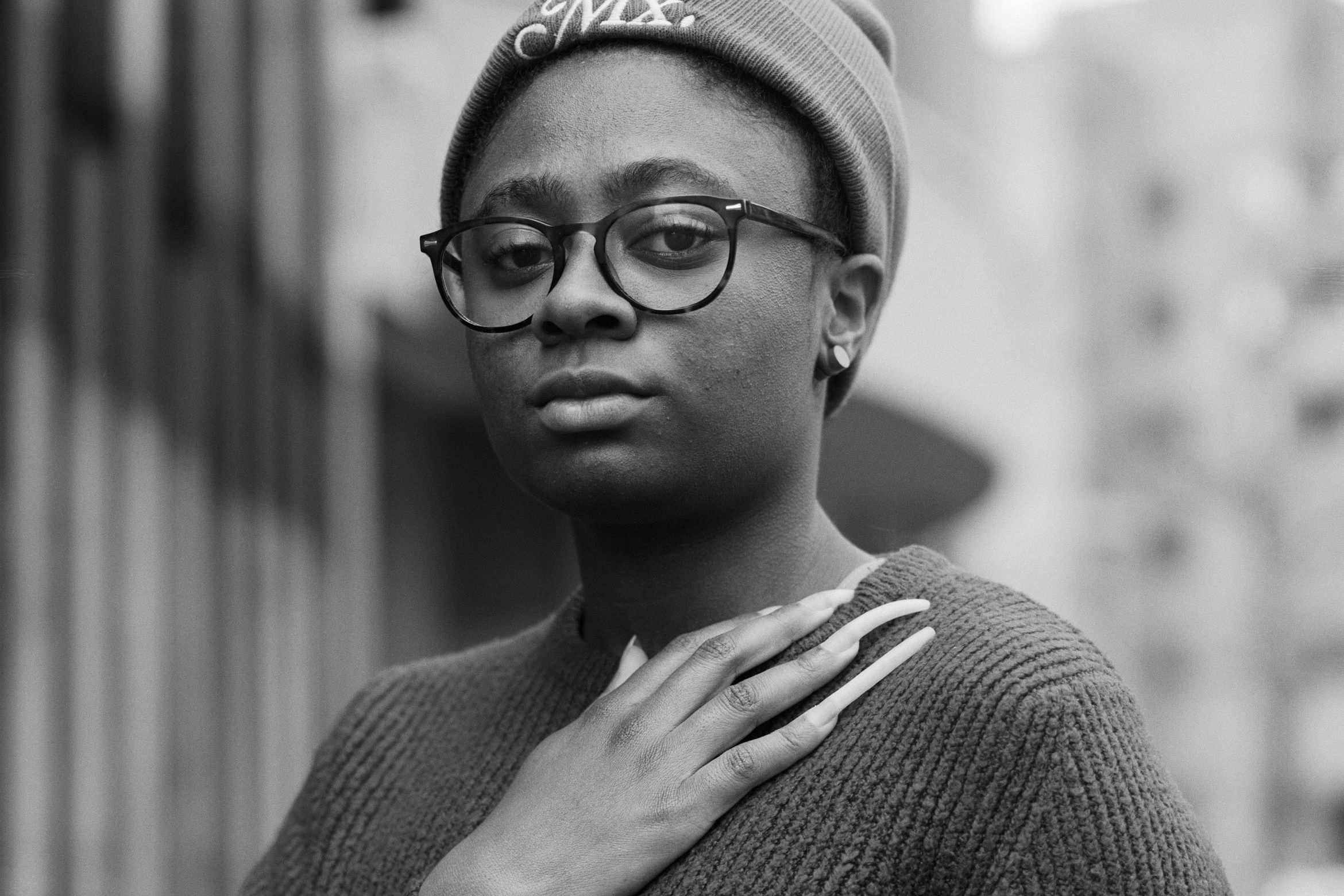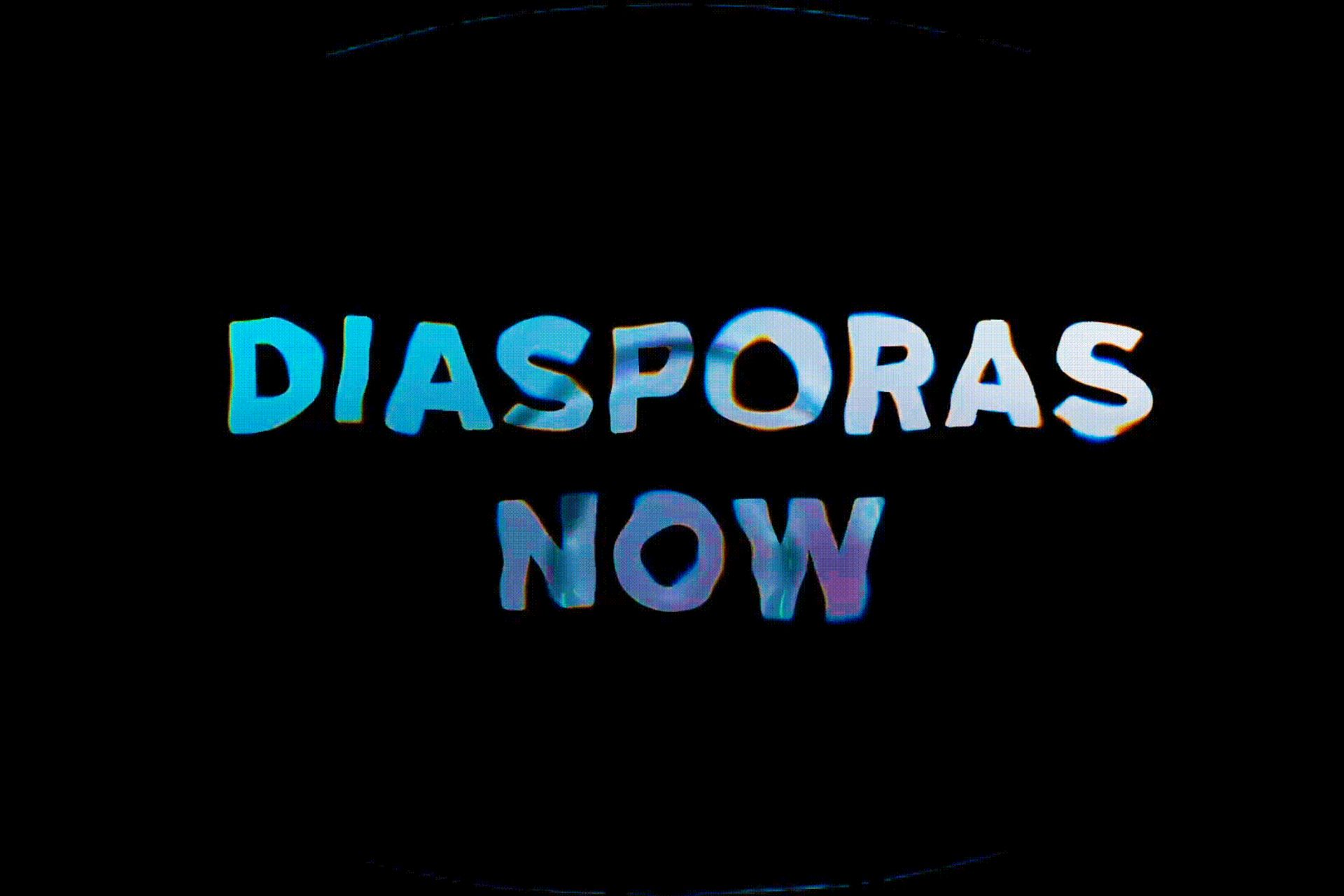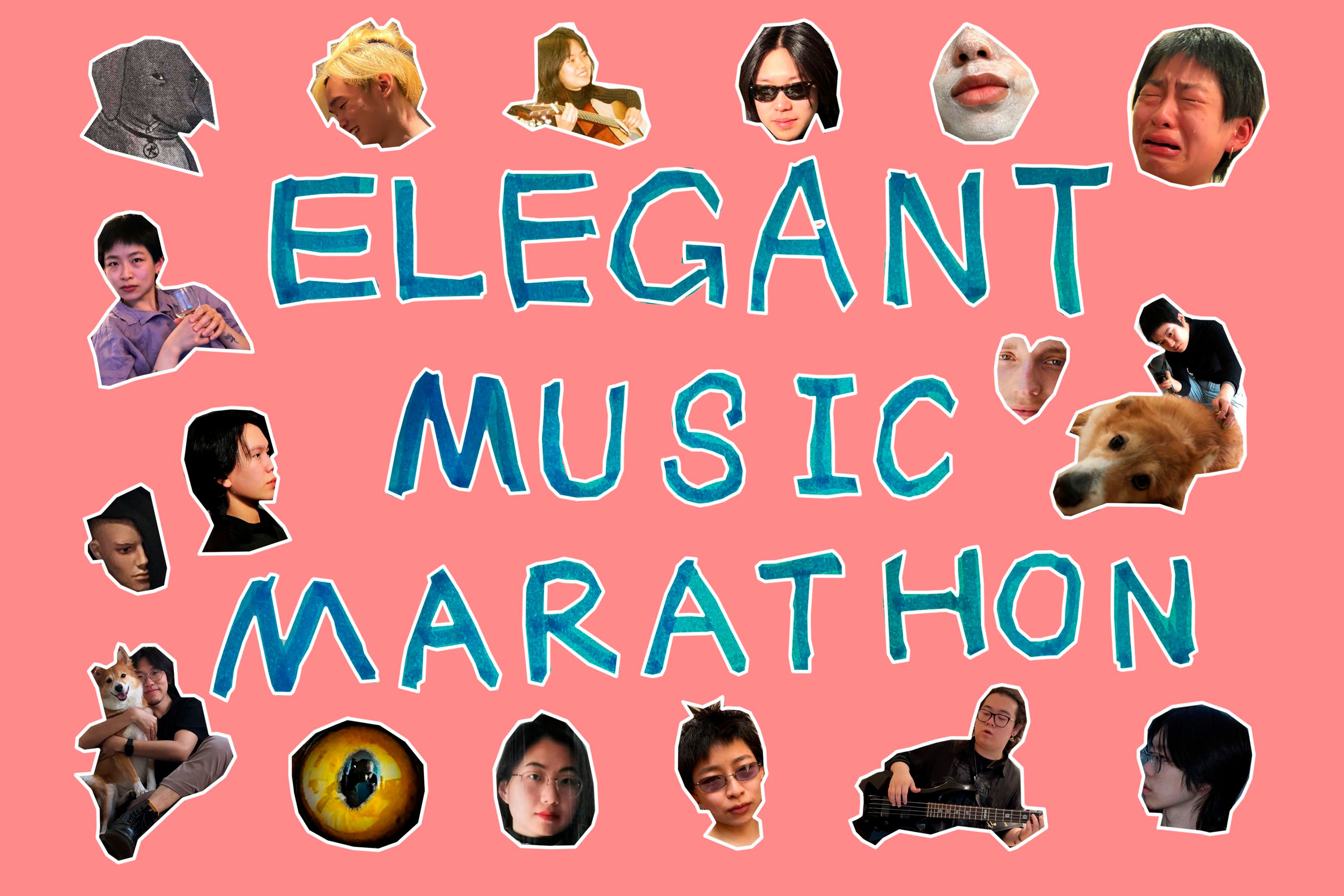Ning Zhou is a queer artist born in 1996. Her work combines photography, performance, moving images and sound. The work she produces are inspired by her personal experience, exploring issues such as gender, relationships, and mental health. She usually presents them in a form of absurd and funny performances inspired by her personal history, dreams, and imagination.
Ning Zhou


In 2019, I was diagnosed with borderline personality disorder by three different psychiatrists. The manifestation of this disorder in me is that my emotions and self-awareness are always in an unstable state.
Besides seeing psychoanalysts and taking anti-depressants, I found that joking about my problems is also a good way to deal with my aggressiveness. Humour makes me feel protected and has made my problems tolerable and shareable. It is a form of mental processing, a coping mechanism that helps me deal with complex information.
In the past two years, I have been learning how to speak up my feelings and develop a tragicomic practice filled with my own narratives.
I believe comedy and tragedy can grow together without losing their respective power. My work is a blend of those two elements and the story focuses on myself, allowing me to better understand myself, and through this process build myself a happier future.
“I Want My Money Back” is a music performance video produced in April of 2021. I wrote this song after receiving too many rejection emails from all kinds of photography competitions and open calls. This song conveys my relationships with those competitions, with my mother, and with my girlfriends. Gradually leading audiences to the heartbroken theme: I just want my money back.
Medium:
music performanceSize:
00:03:21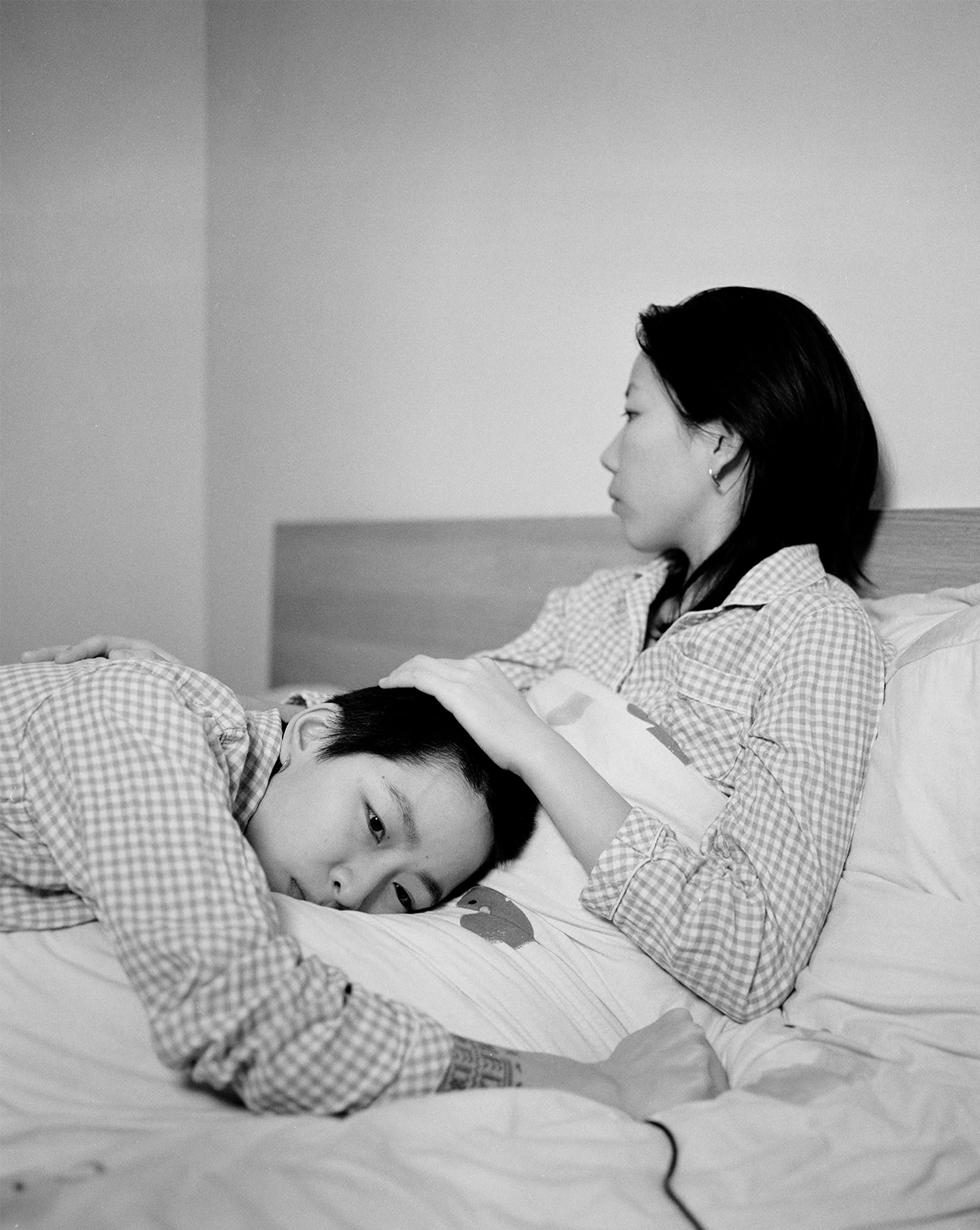
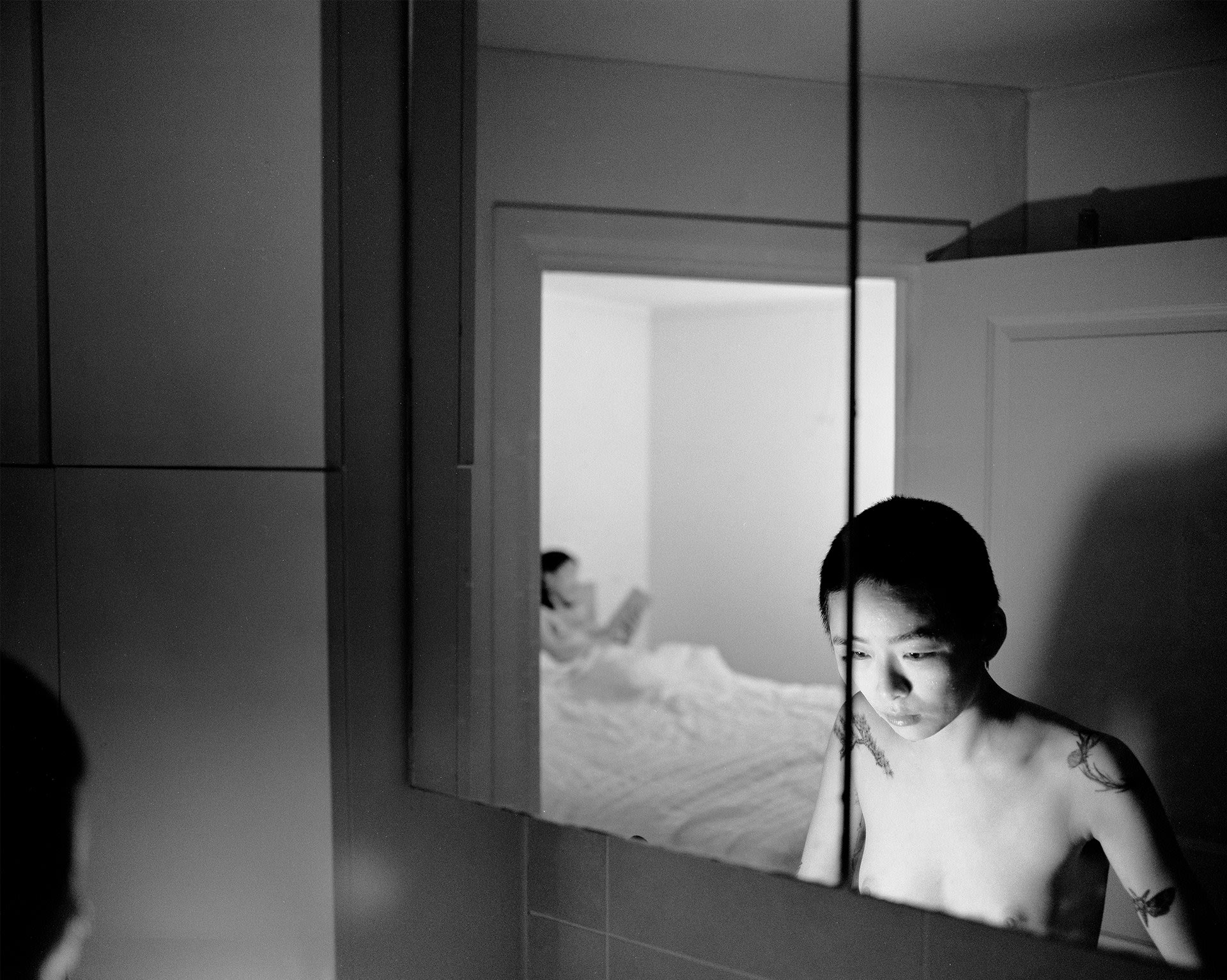


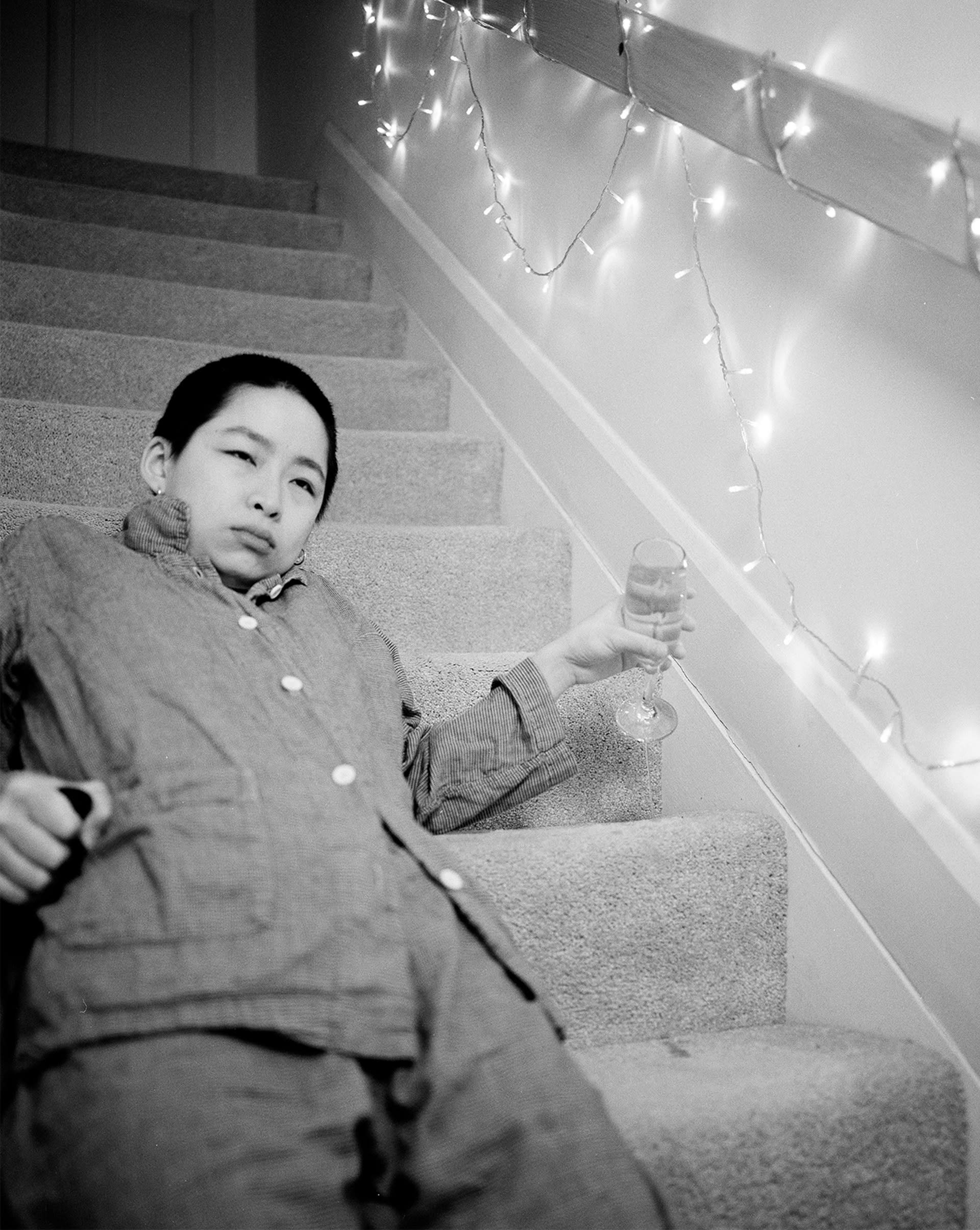

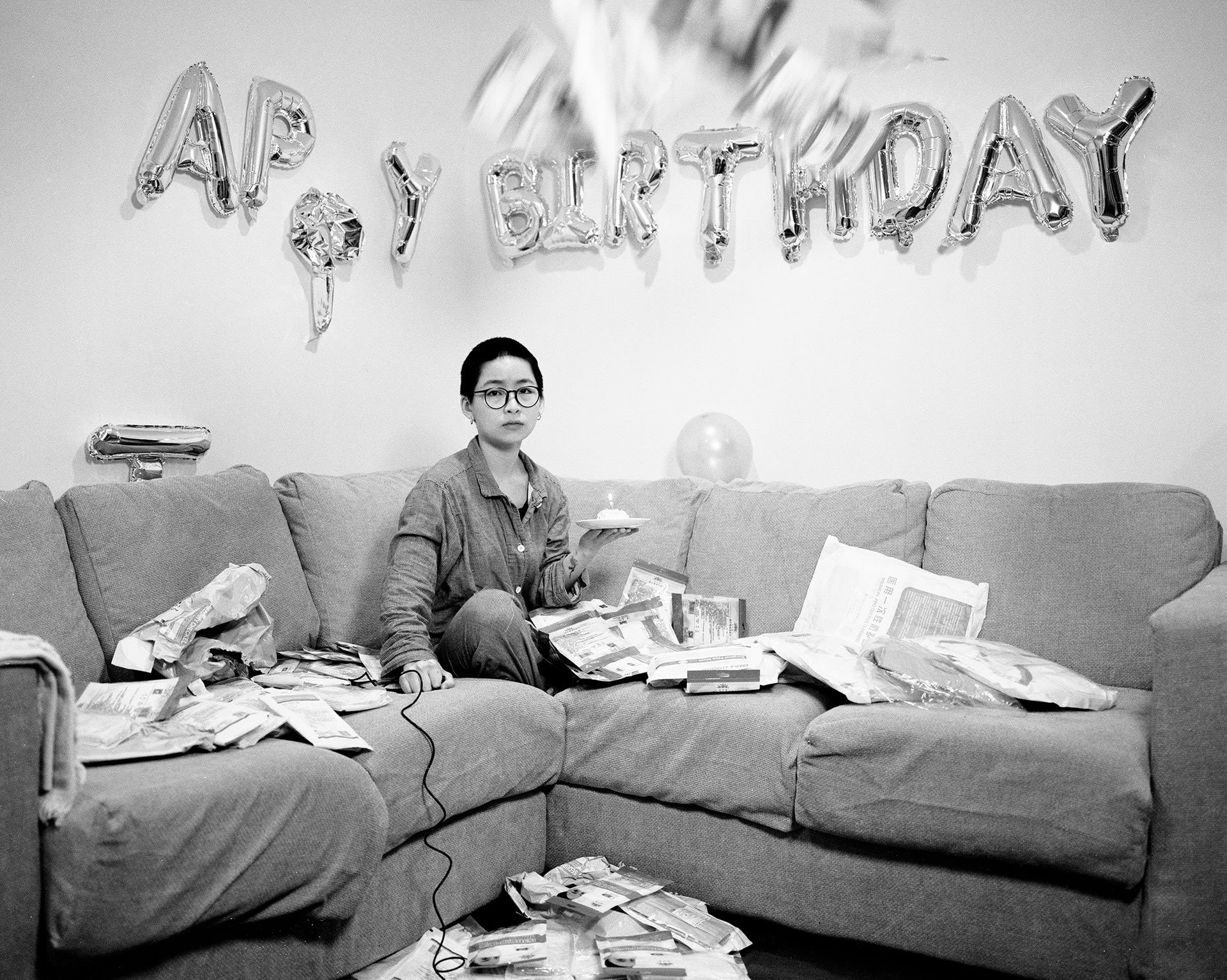



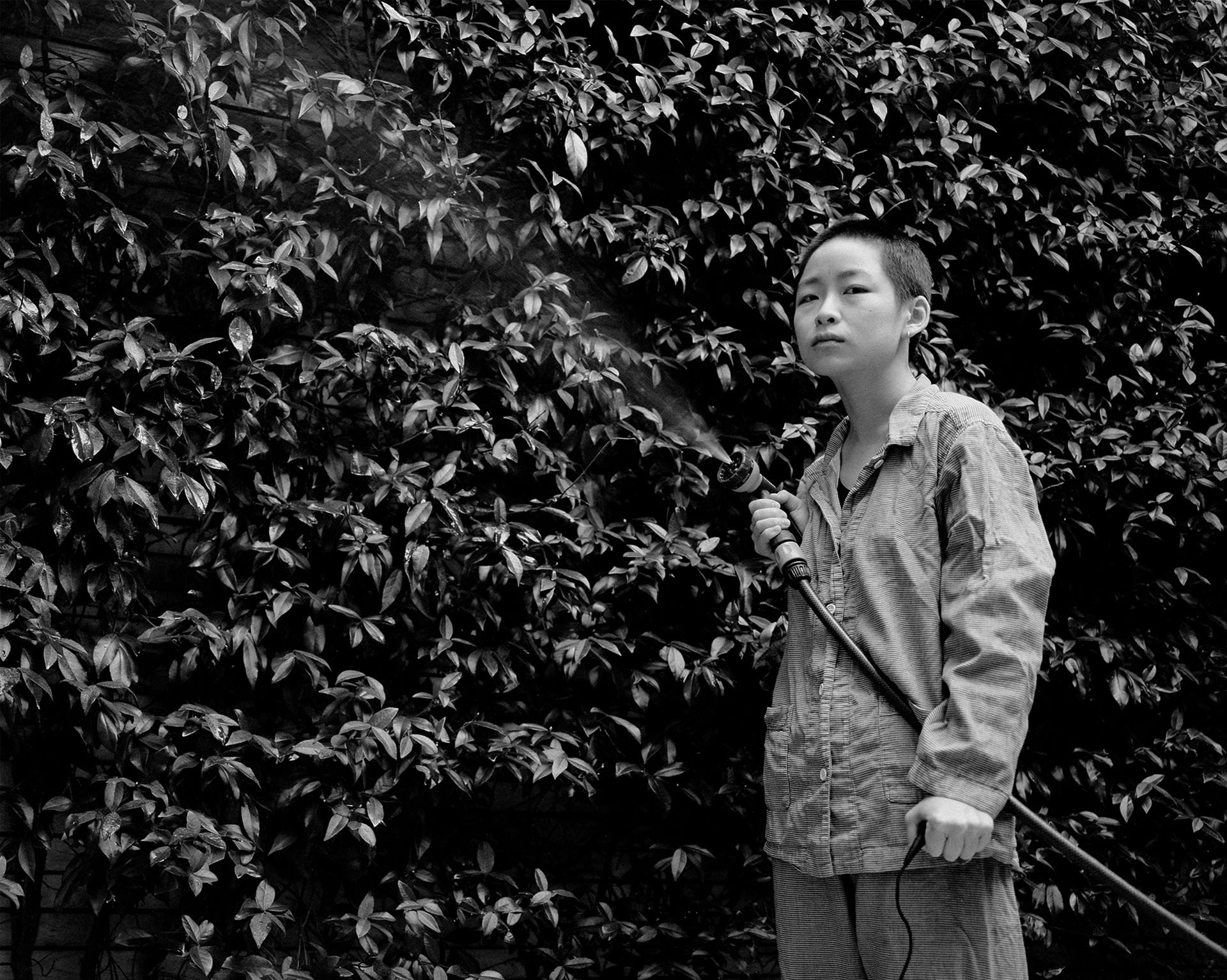




“Questions I Ask Myself During Lockdown” is a black and white photographic story produced during lockdown in London. I started to photograph myself and my partner at home, turning those confusions I had in this period into visual images. The story revolves around raising simple yet touching questions on my practice as a photographer, my relationship with my partner, and with my parents, eventually leading the viewer to the central theme - loneliness - a familiar emotional turmoil during the unavoidable lockdown.
All the films developed at home.
